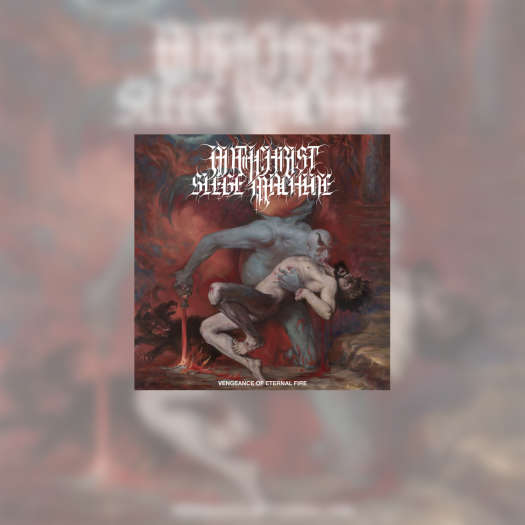Brett Haley's sophomore feature, I'll See You in My Dreams, concerns itself with the nature of mortality and the seeming futility of existence. It's an interesting and even somewhat challenging subject for a mostly conventional film that uses comedy to balance the weighty nature of conversations that often focus on what it means to abandon dreams or live in the void of a loved one's death.
This begins with widow Carol (Blythe Danner) putting down her dog of 14 years. While clinical in its portrayal, Carol's grief and subdued curiosity, watching her beloved pet go from sedated to deceased, more or less sets the stage for everything to come. We learn shortly after that Carol has been a widow for 20 years, rarely sees her daughter (Malin Akerman) and mostly passes her time with a bottle of wine and television when not socializing with a small group of friends (Rhea Perlman, June Squibb and Mary Kay Place) at their retirement villa.
Though obvious, the metaphor of a black rat is introduced early, suggesting that Carol's projection of contentment and peace with her state in life has an underlying flaw. To explore this problem, Carol's pool boy, Lloyd (Martin Starr), comes into the picture to look for the rat and sticks around to befriend Carol and chip away at the singing career she left behind years ago. Haley handles this as an unlikely romance between two people defeated by life's lack of meaning, which adds a bit of tension when Bill (Sam Elliott), a more age-appropriate suitor, comes into the picture, vying for Carol's affections.
In structure, aesthetic and storytelling technique, I'll See You in My Dreams is very much an indie American Sundance production. Stylization is minimal and exists only to aid a format that's focused on characterization and thematic consistency. This helps ensure that Carol isn't portrayed as a victim or someone to be pitied; she has a foundation and a rationalization for her choices and errs on the side of caution when it comes to human connection, perceiving her compounding losses as an ever-growing hole where love and companionship once were.
While some of the conversations come about in a laboured way — Lloyd's interest in Carol's singing career seems a tad strained — they all flow together with a natural progression. Discussions about the lie of "living in the moment" blend into the nature of perceiving time and the contextual relevance of achievement, and all lead back to the idea of futility. Though it's never said (until a particularly emotional scene involving the rat), the underlying fear is death, and what motivates that fear is the idea that all of these achievements and struggles ultimately mean nothing.
It's true that I'll See You in My Dreams can be quite depressing; it's tackling subjects that people typically avoid thinking about. But it's actually a pretty grounded and optimistic movie. While the final moments — moments that ultimately define how Carol chooses to cope with death without outwardly stating anything — are heartbreaking, they're also uplifting, and speak to the importance and the beauty of the few moments of genuine connection and meaning we have in life. Sure, it could be dismissed as a tad twee, but it's also one of those rare movies that moves past all the rubbish posturing and worldly symptoms to dig at the root cause of it all, which is quite admirable.
(Elevation Pictures)This begins with widow Carol (Blythe Danner) putting down her dog of 14 years. While clinical in its portrayal, Carol's grief and subdued curiosity, watching her beloved pet go from sedated to deceased, more or less sets the stage for everything to come. We learn shortly after that Carol has been a widow for 20 years, rarely sees her daughter (Malin Akerman) and mostly passes her time with a bottle of wine and television when not socializing with a small group of friends (Rhea Perlman, June Squibb and Mary Kay Place) at their retirement villa.
Though obvious, the metaphor of a black rat is introduced early, suggesting that Carol's projection of contentment and peace with her state in life has an underlying flaw. To explore this problem, Carol's pool boy, Lloyd (Martin Starr), comes into the picture to look for the rat and sticks around to befriend Carol and chip away at the singing career she left behind years ago. Haley handles this as an unlikely romance between two people defeated by life's lack of meaning, which adds a bit of tension when Bill (Sam Elliott), a more age-appropriate suitor, comes into the picture, vying for Carol's affections.
In structure, aesthetic and storytelling technique, I'll See You in My Dreams is very much an indie American Sundance production. Stylization is minimal and exists only to aid a format that's focused on characterization and thematic consistency. This helps ensure that Carol isn't portrayed as a victim or someone to be pitied; she has a foundation and a rationalization for her choices and errs on the side of caution when it comes to human connection, perceiving her compounding losses as an ever-growing hole where love and companionship once were.
While some of the conversations come about in a laboured way — Lloyd's interest in Carol's singing career seems a tad strained — they all flow together with a natural progression. Discussions about the lie of "living in the moment" blend into the nature of perceiving time and the contextual relevance of achievement, and all lead back to the idea of futility. Though it's never said (until a particularly emotional scene involving the rat), the underlying fear is death, and what motivates that fear is the idea that all of these achievements and struggles ultimately mean nothing.
It's true that I'll See You in My Dreams can be quite depressing; it's tackling subjects that people typically avoid thinking about. But it's actually a pretty grounded and optimistic movie. While the final moments — moments that ultimately define how Carol chooses to cope with death without outwardly stating anything — are heartbreaking, they're also uplifting, and speak to the importance and the beauty of the few moments of genuine connection and meaning we have in life. Sure, it could be dismissed as a tad twee, but it's also one of those rare movies that moves past all the rubbish posturing and worldly symptoms to dig at the root cause of it all, which is quite admirable.




